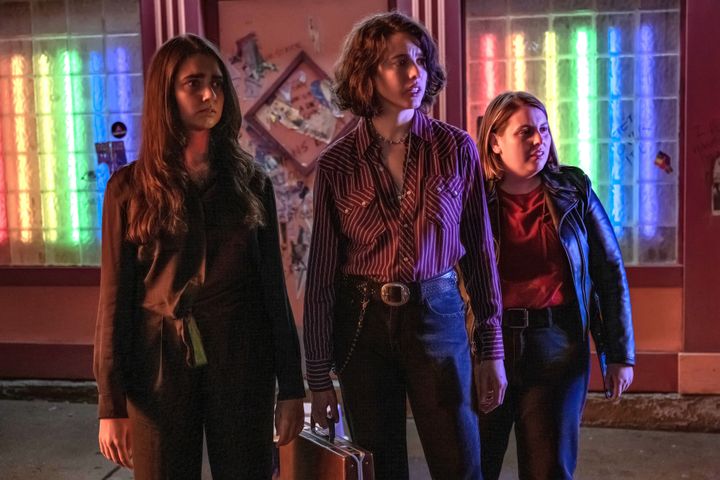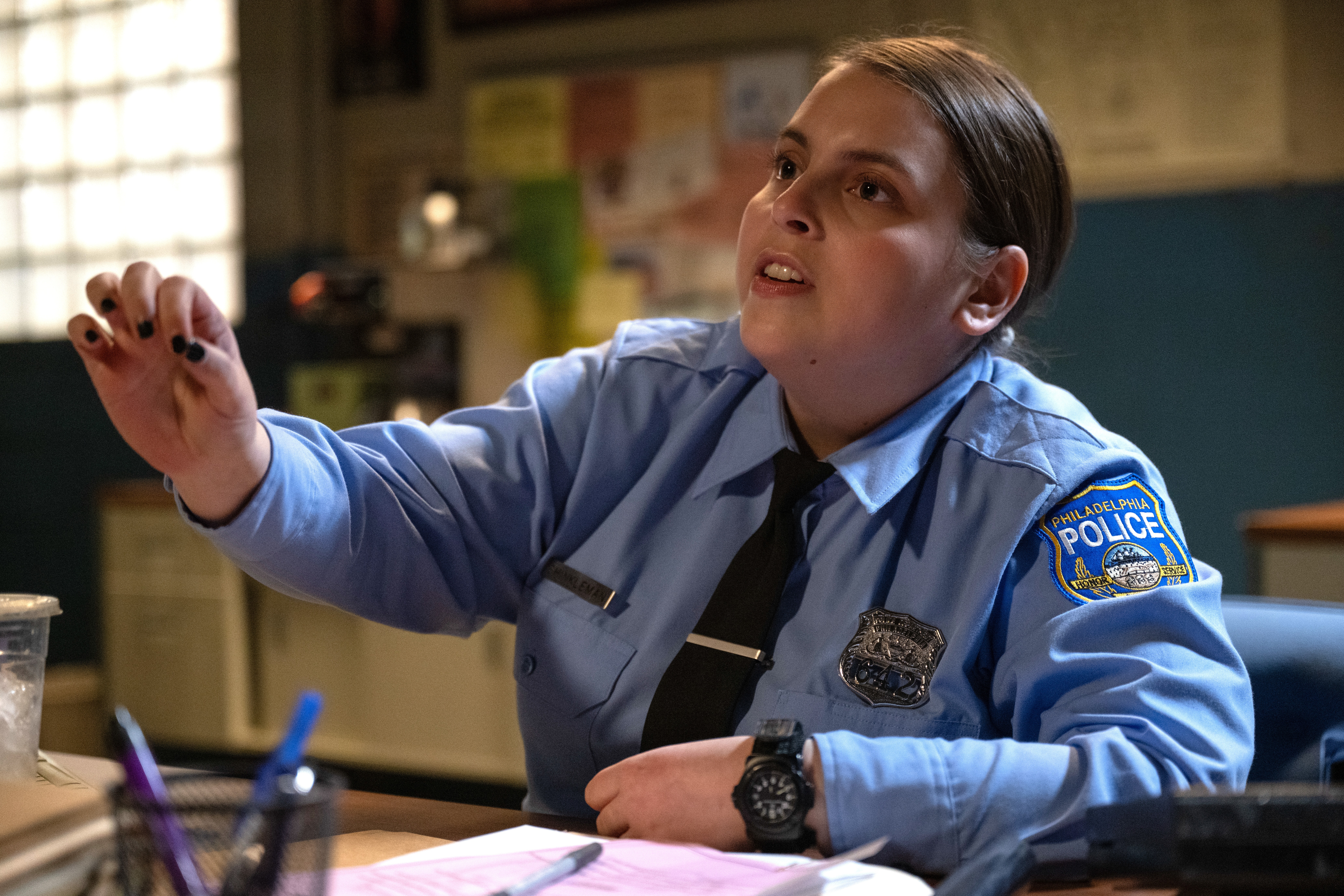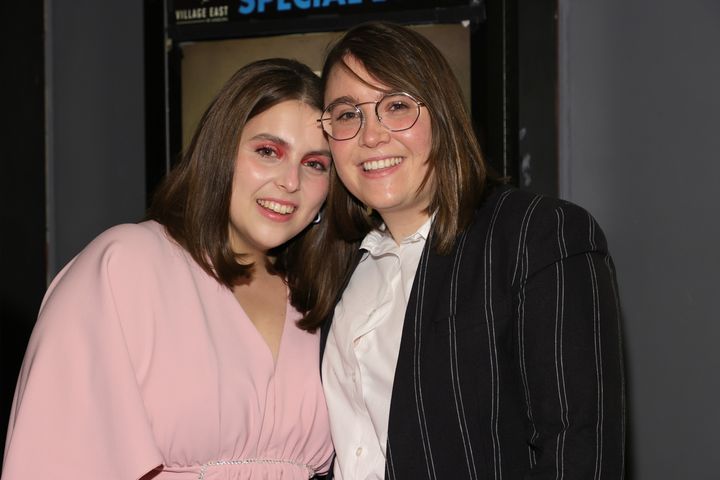Beanie Feldstein is seemingly still in celebratory mode after marrying her wife, Bonnie-Chance Roberts, last year. But in “Drive-Away Dolls,” which opened in theaters last week, she’s relishing the “genuinely empowering” experience of playing an “unapologetic, ferocious, abrasive” woman who is on the rebound after a bitter breakup.
“As a small, round person, I don’t always get taken seriously,” Feldstein told HuffPost. “So it’s incredibly cathartic to scare people in the context of a comedy. It’s very inspirational to play somebody who is totally uninhibited, totally themselves and not afraid to go after what they want, no matter if there’s a 6-foot-3 guy in the way.”
Directed by Ethan Coen from a script he co-wrote with his wife, Tricia Cooke, “Drive-Away Dolls” is simultaneously a road trip flick and a crime caper. Set in 1999, the movie follows two queer women, Jamie (played by Margaret Qualley) and Marian (Geraldine Viswanathan), who drive from Philadelphia to Tallahassee, Florida, with plans to barhop and bed-hop following Jamie’s less-than-amicable split from her police officer girlfriend, Sukie (Feldstein).

But Jamie and Marian’s Sunshine State excursion starts to go spectacularly awry when it’s revealed that their rental car had been intended for a trio of criminals and, as such, is carrying some grisly cargo.
The pair’s last hope is to lure Sukie, still dejected after the demise of her relationship with Jamie, to Tallahassee in her official capacity as a cop. A cheeky subplot involves cameos by Matt Damon and Pedro Pascal, as well as a sex toy modeled after a right-wing politician’s penis.
Feldstein is, of course, no stranger to LGBTQ+ inclusive projects. Her two best-known films, 2017’s “Lady Bird” and 2019’s “Booksmart,” featured queer characters at their core.
Though her “Booksmart” character was straight, Feldstein credited the movie with encouraging her to publicly address her own sexuality.
“I think if I could have seen our film earlier, I would have found myself a bit sooner,” she said at the time of its premiere.

As for playing a queer woman in “Drive-Away Dolls,” Feldstein said that it felt “exciting and meaningful.”
“This is actually the first time I’ve played a queer character, or a character who was specifically noted to be queer,” she explained. “To be a part of a movie that centers the lesbian experience and features lesbian sex scenes, and is also this wild, raunchy, bombastic ride that does not take itself too seriously, is a dream.”
Feldstein is hopeful that Sukie won’t be the last of her lesbian characters, noting that she has her heart set on starring in “a true, honest-to-God queer rom-com” in the future.
Boosting LGBTQ+ representation off-screen has become one of her personal goals, too. Shortly after she and Roberts tied the knot in May, Vogue published a stunning series of photos showcasing the two women in their wedding attire.

While such a spread might seem standard for celebrity newlyweds, Feldstein felt that being “given the same space as a heteronormative couple” in a mainstream publication like Vogue was significant.
“When my wife was looking for what she wanted to wear, there were so few examples of women not in dresses on their wedding day,” she said. “So I was just like, ‘B, you could help change the narrative.’ I was proud to share my insanely beautiful dress, but I was equally as proud to share her in her insanely beautiful suit. She felt so herself. It was everything we could’ve hoped for, and more.”
Disclaimer: The copyright of this article belongs to the original author. Reposting this article is solely for the purpose of information dissemination and does not constitute any investment advice. If there is any infringement, please contact us immediately. We will make corrections or deletions as necessary. Thank you.
